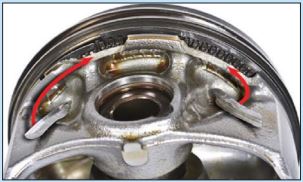SIGNATURE SERIES Protects Engines from Future Industry Problem LSPI can destroy pistons and connecting rods, bringing an engine to a standstill in seconds. Original equipment manufacturers (OEMs) like General Motors (GM)* have addressed the issue by designing tests to gauge a motor oil’s ability to prevent these destructive events. Signature Series achieved 100 percent protection […]
You are browsing archives for
Tag: turbocharged
Is There Really an Advantage with Premiu...
OCTANE EXPLAINED: DOES PREMIUM, HIGH-OCTANE GAS BOOST PERFORMANCE? Save yourself a lot of money and use the lowest rating suggested in your owners manual. Typically the only cars which need premium fuel are older high compression engines (pre 1980’s) and the ever popular turbocharged engines. I run premium in my Ford Transit with the Ecoboost […]
Deposit protection is critical for turbo...
Deposit protection is critical for turbocharged engines Motor oil quality must stay ahead of the curve. Matt Erickson | TECHNICAL PRODUCT MANAGER, PASSENGER CAR It may be a good time to invest your retirement funds in a company that builds automotive turbochargers; they’re predicted to be in most new passenger cars/light trucks by 2020. As […]
